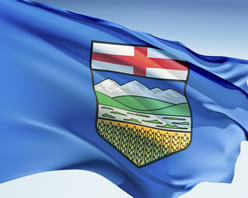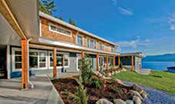Addiction Recovery Group Meetings in Canada
Posted by CDR Help Desk on Aug 8, 2018 in Blog | 0 comments

 There are many kinds of recovery group meetings for alcohol treatment and/or drug rehabilitation throughout Canada you can attend as you work through your recovery. If you are trying to decide which style of meeting will work for you best, this list will help compare the options. This blog will cover four kinds of meetings, some with a religious basis and some secular. Alcoholics Anonymous (AA) and Narcotics Anonymous (NA) are very similar as they stem from the same 12 step methodology. SMART Recovery stands for “Self-Management and Recovery Training” and is a non-12 step program. LifeRing is another non-12 step program but it has a different emphasis to SMART Recovery.
There are many kinds of recovery group meetings for alcohol treatment and/or drug rehabilitation throughout Canada you can attend as you work through your recovery. If you are trying to decide which style of meeting will work for you best, this list will help compare the options. This blog will cover four kinds of meetings, some with a religious basis and some secular. Alcoholics Anonymous (AA) and Narcotics Anonymous (NA) are very similar as they stem from the same 12 step methodology. SMART Recovery stands for “Self-Management and Recovery Training” and is a non-12 step program. LifeRing is another non-12 step program but it has a different emphasis to SMART Recovery.
Alcoholics Anonymous
AA was founded in 1935 by Bill Wilson and Dr Robert Smith. They believed in the disease model of addiction, which states that addicted people have no control over the substance and its addictive powers. An integral part of the disease model is that the disease of addiction is irreversible, and due to this, lifelong abstinence is required to be successful. The 12 step process is also heavily influenced by a belief in a higher power. Therefore, AA meetings are likely to be more helpful for people who already share some of this ideology.
Narcotics Anonymous
NA is based on the principles of AA, as they apply to those with drug use problems. AA began in the late 1940s and the first NA meetings happened in the early 1950s in California. NA recovery group meetings are open to people who struggle with any kind of drug, whether they be illicit narcotics or prescribed medications.
SMART Recovery
SMART Recovery uses its “Four-Point Program” to help meeting attendees with their substance use struggles. The four main points taught are: enhance and maintain motivation to abstain; cope with urges; manage thoughts, feelings, and behaviours; and balance momentary and enduring satisfactions. The striking difference between SMART Recovery and 12-step programs like AA and NA is that it is science-based rather than spiritual-based. The meeting organizers do not expect attendees to come indefinitely, as they are taught self-reliance and problem-solving skills. SMART Recovery does not use terms like “addict” as they believe a person has a problem and is not the problem.
LifeRing
LifeRing is a non-12 step program that promotes abstinence in recovery. Self-described as ‘sober, secular, and self-directed’ this is another good option for those who do not want a faith-based group. Meeting attendees will not only participate in group discussion but also work through a “Recovery By Choice” workbook. The CDR website is one of the top directories in Canada of drug rehabilitation and alcohol treatment program options, so turn to the website to location options near you. For example, check out our resource on British Columbia Drug Rehab and Alcohol Treatment Programs.
Resources:
- SMART Recovery
- The Evolution of Addiction Models: How Drug Rehab and Alcohol Treatment Program Thinking in Canada has Evolved
- Narcotics Anonymous
- LifeRing
JMC – 2018.07.25
The post Addiction Recovery Group Meetings in Canada appeared first on Canada Drug Rehab.



